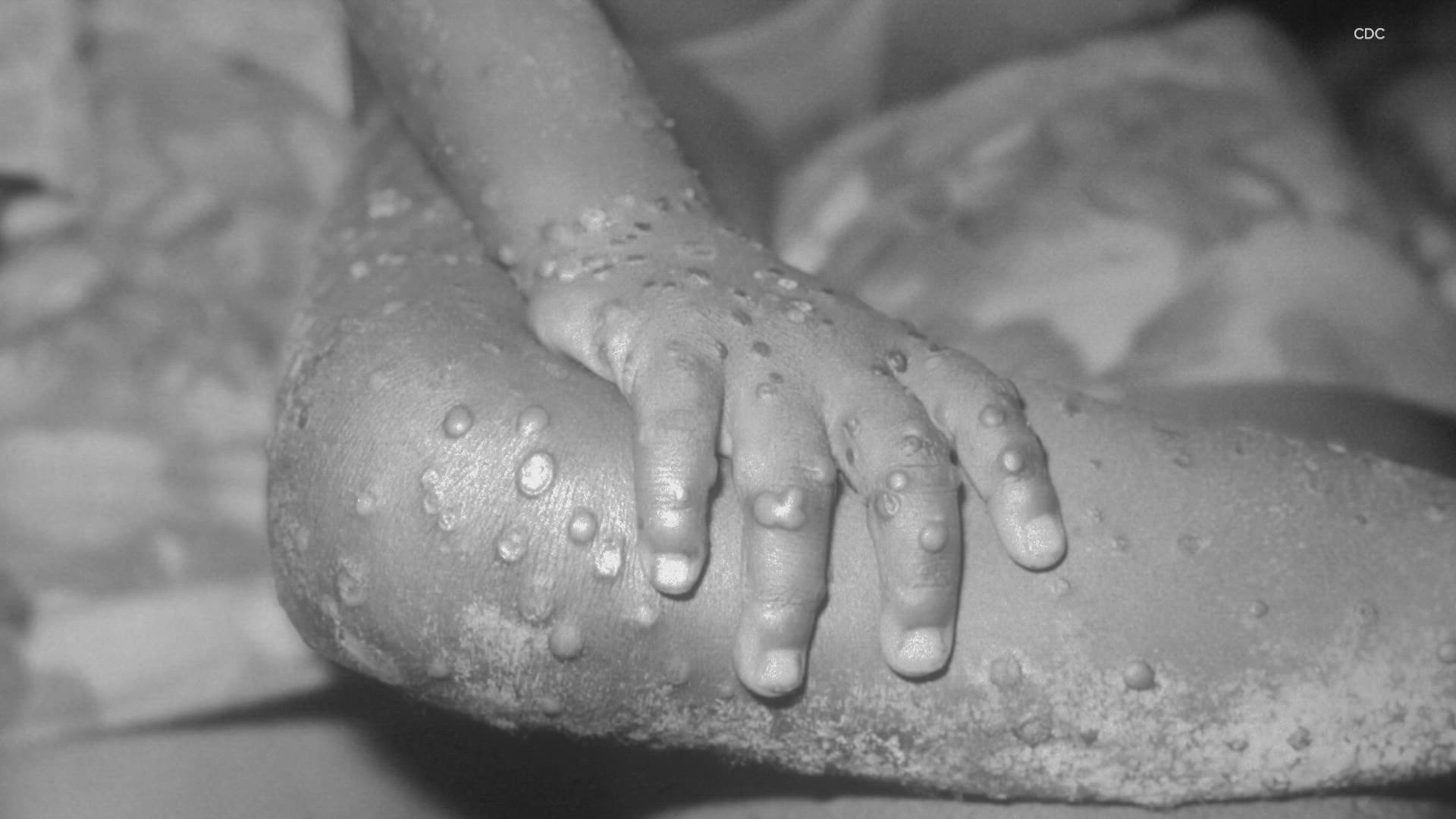DALLAS COUNTY, Texas — Dallas County has reported its first monkeypox case in 2022 in a resident that has recently traveled to a country that has also reported cases in the past month, Dallas County Health and Human Services announced Tuesday.
The case was also the first reported positive case of monkeypox in Texas this year.
DCHHS officials said the preliminary test results came back positive on Monday at the Centers for Disease Control and Prevention (CDC) lab in Atlanta. It will be included in the CDC's official case counts.
The positive test comes after the CDC announced earlier this week that at least 21 people in 11 states have been infected with the disease.
The agency raised its monkeypox alert to a level 2 after global cases surpassed 1,000.
A level 3 alert would caution against nonessential travel. The level 2 alert encourages folks to avoid close contact with anyone who is sick, and that includes people with skin or genital lesions, as well as any contact with sick or dead animals.
It also stresses those displaying symptoms of the virus, such as sudden unexplained skin rashes or lesions, to avoid contact with others and to call health officials.
The Dallas County resident will not be identified due to privacy concerns.
Public health officials have identified people who have been in direct contact with the patient and are monitoring them for symptoms of infections.
The CDC is also working with the airline and state and local health officials to contact airline passengers and others who may have been in contact with the patient on board a flight from Mexico to Dallas.
DCHHS officials said the patient has not been hospitalized, remains isolated, and is recovering at home.
DCHHS Director Dr. Philip Huang said the patient does not pose any known risk to others at this time, however, “monkeypox cases have been spreading globally, and we are actively working with local healthcare providers to ensure they are prepared to recognize monkeypox and report suspected cases to public health officials.”
"This is the first case that we've seen this year," Dr. Huang said. "We're monitoring the people who have had direct contact with the patient for symptoms."
According to health officials, the monkeypox virus spread between people primarily through direct contact with infectious sores, scabs, or body fluids. It can also spread by respiratory secretions during prolonged, face-to-face contact.
Monkeypox can also spread through intimate contact like sex, as well as activities that include kissing, cuddling, or touching parts of the body with monkeypox sores.
The CDC says a majority of the patients that have recently tested positive for the monkeypox were described as gay or bisexual, or other men who have sex with men. One woman who described only having heterosexual sex also tested positive – it’s unclear how she got the disease.
While cases in the U.S. have largely been confirmed among the LGBTQ + people, the disease is not exclusive to that group.
Rodney Rohde, a virologist with Texas State University, told WFAA that monkeypox is less transmissible than COVID-19 and said people shouldn't be alarmed or change any way they go about their day.
"Outside of skin-to-skin contact, you really have to have prolonged face-to-face exposure for three or more hours," Rohde said. "It's also not as fatal. This particular strain in the U.S. is about 1% or less fatal. And we've seen no fatalities yet."
Not to mention, the smallpox vaccine does provide some protection against monkeypox and there are antiviral treatments.
Last year, Dallas County had one reported monkeypox case. The person traveled from Nigeria to Dallas, arriving at Love Field on July 9, 2021. There was very little risk to the public with that case, according to health officials.
Huang said the county handled that case well and notified over 200 people who came into contact with the infected person. Huang said they were monitored for 21 days and none ever had symptoms.
Health officials said those infected with monkeypox may experience fever, rash, and swollen lymph nodes, as well as more serious complications. For more information, click here.

